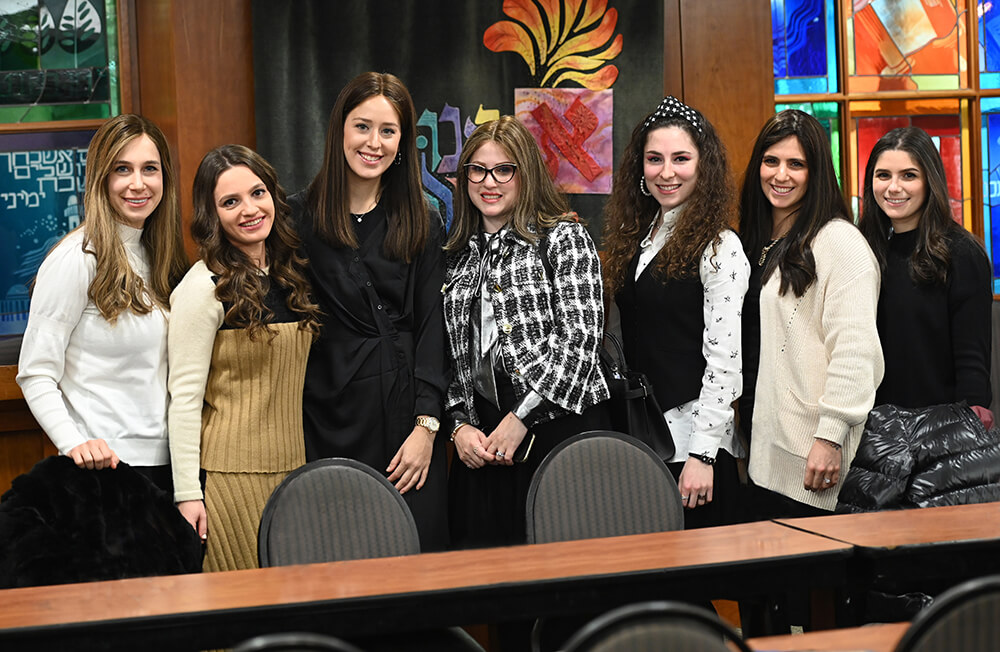The Many Possible Healthcare Careers for Observant Jewish Women
Touro College Panel Showcases How Women Can Succeed While Balancing Careers in Medicine and Health Sciences with Jewish Life

Choosing a career in medicine means a lifetime of satisfaction for people who want to make a difference for others. Healthcare fields are growing, so opportunities abound and salaries are lucrative. With so many rewards, why are these choices daunting for women, especially religious Jewish women?
Media depictions of doctors, nurses, and other healthcare professionals focus on crises and long hours away from home. Rarely do we hear about healthcare professionals going home to cook dinner for their families, shop for holiday clothing or attend Torah classes. Women who want to raise large families and participate in communal life must search hard to find role models in medicine and healthcare.
To provide a more realistic sense of how observant Jewish women succeed in careers in the medical and health science fields, Touro College presented a program for young girls and women that featured women who are integrating communal, professional, and personal roles. Six Touro health science students and alumni spoke about their experiences—from undergrad through grad school and beyond. Their professions included medicine, dentistry, physician assistant (PA), physical therapy (PT), occupational therapy (OT), and nursing. The women discussed all aspects of their careers—why they chose their particular fields, how to ace the schooling, challenges, and opportunities, and potential for work-life balance.
Many spoke of the opportunities Touro provided to ease their paths throughout their educational journeys—from kosher food, an academic schedule based on the Jewish calendar, to a community of religious students on the medical and dental school campus that offers Shabbatons, pre-holiday gatherings, Torah classes and the supportive network of observant students in the therapy programs who developed study partnerships and deep friendships. As religious women, they described how they are able to balance multiple priorities—including marriage, raising children, and communal involvement—and succeed in their training and enjoy their careers all at the same time.
Real Women Share their Stories
Yael Bree Greenberg, a fourth-year medical student at Touro’s New York Medical College, shared that medicine is a “great career for those who love science, love people and aren’t scared of spending many years in school.” She pointed out that medical training is a long-term commitment. Students can expect to spend 12 years earning their undergraduate degrees, medical degrees, and completing residencies. However, she said, "if you have a vision of your long-term goal, you can do it and you’ll be happy doing it.” Greenberg is married with a baby and currently applying to anesthesiology residency programs.
Racheli Sambrowsky, is a third-year dental student at Touro College of Dental Medicine. She described dentistry as a field with enormous opportunities for growth. “You have to make fast decisions, think on your feet, problem solve. At the end of the day, there is nothing more gratifying than a patient thanking you for stopping their pain or fixing their smile,” she said. Listen to Racheli’s presentation.
Dassie Nelkenbaum, an emergency room nurse at Maimonides Medical Center, is passionate about nursing, which she describes as “the art of caring and science.” The job is intense, but she wouldn’t have it any other way. Listen to Dassie’s presentation.
Achieving Work-Life Balance
One concern that may hold women back from careers in health sciences is the potential for work-life balance. Several of the panelists countered that misconception, pointing out that their fields offer opportunities to shift between full and part-time work throughout a career.
Bracha Schoenblum, a Doctor of Physical Therapy, owns a private practice in Woodmere and has four children. She said, “you can work in a hospital full time or part-time. You can have your own practice or work for someone else. You can work in places that you probably haven’t considered. Companies hire physical therapists with expertise in ergonomics. Performing arts organizations need PTs also. Your strengths will guide you to the areas you love.” Listen to Bracha’s presentation.
Diana Safier has been a family medicine physician assistant for the last seven years. A mother of five who got married at the start of college, she chose PA because it enabled her to “get where I wanted to go in just two years. I knew I wanted to treat patients but I did not want the stress of running my own practice.” She loves her job and works part-time, allowing her time to care for her family and volunteer in the community, including running a charitable organization. “PA is a flexible field; you can work full time or part-time and change specialties at any time.” Listen to Diana’s presentation.
Yocheved Teitelbaum, an occupational therapist, pointed out the many different settings in which OTs can work, including hospitals, rehab facilities, schools, and sensory gyms. “I love OT because it’s a dynamic field where you have a chance to interact with people all day, helping them at vulnerable times in their lives. It’s a flexible career in that it’s possible to work part-time, switch to different settings mid-career and achieve work-life balance," she explained.
Dr. Miriam “Mimi” Knoll of Cedarhurst, a board-certified radiation oncologist and mom of four children who also co-founded the Jewish Orthodox Women's Medical Association (JOWMA) offered words of advice. “Every woman comes to the decision about how to lead her life in her own unique way. From mentoring scores of young women, I can tell you there isn’t one answer for everyone.” She encouraged young women to explore their passions, find what is most meaningful to them, and believe in themselves. Listen to Miriam’s presentation.
“Your responsibility is to do what speaks TO YOU. Throughout your career, make sure to keep checking in with that little voice in your head. It’s the voice that tells you, I want to develop my talents, to make the world a better place, to give back to the world and make a difference,” said Knoll.
/prod01/channel_38/media/redesign/assets/images/background-images/locations-background.jpg)
